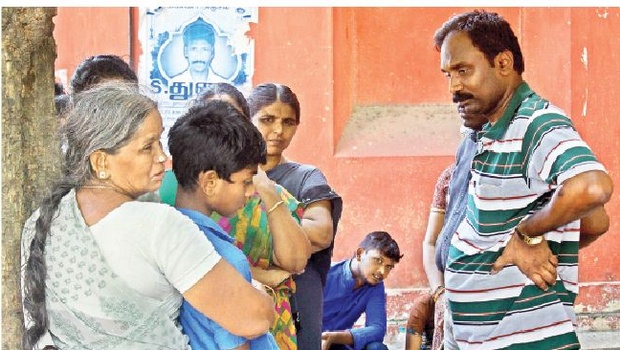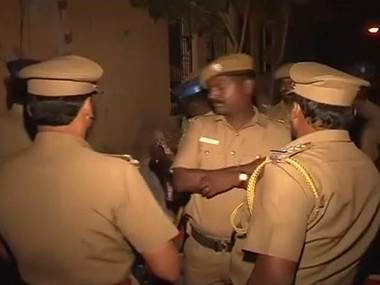At these Indian institutes of tensions, even erstwhile toppers end up succumbing to exceedingly exalted expectations.
Apoorva Pathak
The news of suicides of two women in the IIT Madras campus once again brings to fore the disconcerting reality of unacceptably high number of suicides that take place among the institutes that are the pride of the nation.
While suicides among IIT aspirants is easily attributable to the toll that the hyper competition takes - the failure of our education system to prepare our youths to deal with stress, the do-or-die struggle around entering IITs, extreme societal pressure, etc - what explains students, who have already managed entry into the supposed dream world of IITs also, committing suicide?
A combination of factors underscore what is now becoming a disturbing trend among premier institutions, including the IITs, being tainted by bright students taking their own lives.
Failure to integrate SC/ST students
A large number of suicides in the IITs are committed by students from SC/ST background. The reason for this lies in the less than appreciable assimilation of SC/ST students in the institute.
The students come from a less privileged background, have a lot riding over their shoulders and don't get the same level of support that their fellow students from more privileged backgrounds get.
Some of them have trouble with their academics due to the difference in institutional culture of the respective schools they attended and the IITs.
Moreover, they get into language troubles as the medium of instruction is mostly English in these engineering havens, which many from underprivileged backgrounds are not very comfortable with.
This results in them facing difficulty in understanding and fully following the complicated lectures delivered in a relatively unfamiliar language.
The academic troubles are made worse by social exclusion.
Academic apartheid
There is a lingering divide between the reservation-based and so-called "meritorious students".
Let's face it: many of the upper caste students look at their classmates from SC/ST background as undeserving. This contempt, though never explicitly expressed, is often subtly felt by the students from SC/ST background, leading to worsen the existing inferiority complex and at times even inducing guilt trips for the sheer fact of being at the IITs.
Little or no counselling
In the face of such challenging academic and social experience, the need of consular and institutional support system assumes paramount importance.
Though formal set-up exists, in practice these counsellor support mechanisms have failed to reach out to and help students. They are pretty defunct and the essential connect is sorely lacking.
The culmination of all these factors is that many of the SC/ST students are left to struggle alone in a world very different from the one they have grown up in.
While many do succeed against these great odds and make it big, providing the inspirational narratives that are paraded as the success of the Indian story, but a few do call it quits.
Though small, the numbers are enough to get the alarm bells ringing.
Indian institute of tensions
During their preparation for the IITs, students end up succumbing to the exceedingly exalted expectations from these institutes. They are made to believe that after two years of gruelling homework if they make it to the IITs, which would be end of their struggle.
Many harbour great dreams about great adventures in the realm of science and technology. They also come with unrealistic expectations about the jobs they will secure (the oft-highlighted "two crore packages" create a false impression about those being the norm).
The actual experience inside the IITs, more often than not, fails to meet the sky-high expectations.
There is stiff academic competition which requires effort and some of those exhausted by their unceasing hard work to get into IITs are often unable to keep pace with the strenuous effort. As a result, it reflects in falling grades and piling backlogs.
There is also disappointment in store for many of those who come with romantic notions of technological adventures and wonder they may undertake at the IITs.
Also having been used to being toppers in school, it's hard for many to realise that they are now in a crowd of toppers, and the competition has gone up by many a notch.
Nevertheless, chronic depression results in many because of their inability to come to terms with this simple but bitter truth.
Great expectations
Besides, the students are equally bogged down by the burden of collective expectations. They are expected to be toppers always and secure the headline-making jobs. But once inside IITs, they discover to their utter horror that the headline-making jobs are exactly that: exceptions to the otherwise humdrum and fairly low key though well paying jobs even for which there's cut-throat competition.
Heartbreaks
Also, the college years have other sources of anxiety, such as romantic entanglements and eventual break-ups.
But the students at the IITs rarely get the sympathetic hearing of their equally difficult disappointments in matters of the heart.
Thanks to the hype around the IITs, most are unwilling to believe that even IITians have their fair share of disappointments in love and are not always trying to be cookie-cutter techies engineering a brand new world.
Hype versus reality
Thus, some of these bright minds, who in reality end up clocking poor grades, high number of backlogs, low job prospects and the added burden of not living up to the high hopes everyone places on their shoulders, routinely fall prey to the temptation to end their miseries in one go.
They take their own lives as a last resort, as an escape route.
Addiction issues
There is also significant usage of drugs under peer pressure, often as a fashion statement and as a means to deal with academia-induced depression.
In some cases, students enter a downward spiral of using drugs to cope with depression leading them to perform poorly, deepening their anxieties and worsening the dependence on drugs. In a short time, this becomes a vicious cycle until some end up committing suicides or land in rehab centres.
Low confidence
As a society, Indians tend to look down on those who don't perform well. They face social disapproval and stigma in a way few other societies make their under performers suffer.
This again puts too much of premium on a narrow definition of success, which is scoring high in school and college examinations which basically test our ability to cram rather than innovate.
In the process, our collective mentality moves towards a collective punishment of sort, wherein our censure of those who haven't done relatively well in studies pushes them to take their own lives.
No systematic study on campus suicides
All these above discussed factors are merely observations that I made while pursuing my graduation at an IIT and the conversations I had with students from other IITs.
Unfortunately, there hasn't been a systematic and in-depth study done to properly understand why the brightest of Indian students too are driven to suicides.
This certainly reveals the apathy with which our authorities and institutions approach this serious issue.
It's high time a course correction is undertaken.
Perhaps a good place to begin would be to constitute a study of causes of all the suicides that have taken place on campus.
Moreover, we need to follow up the study with corrective measures that ensure India no longer continues to lose its future to utterly avoidable and extremely tragic student suicides.














